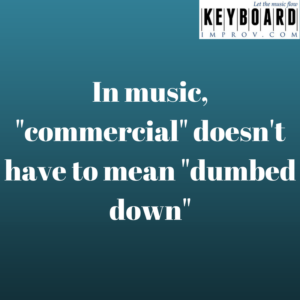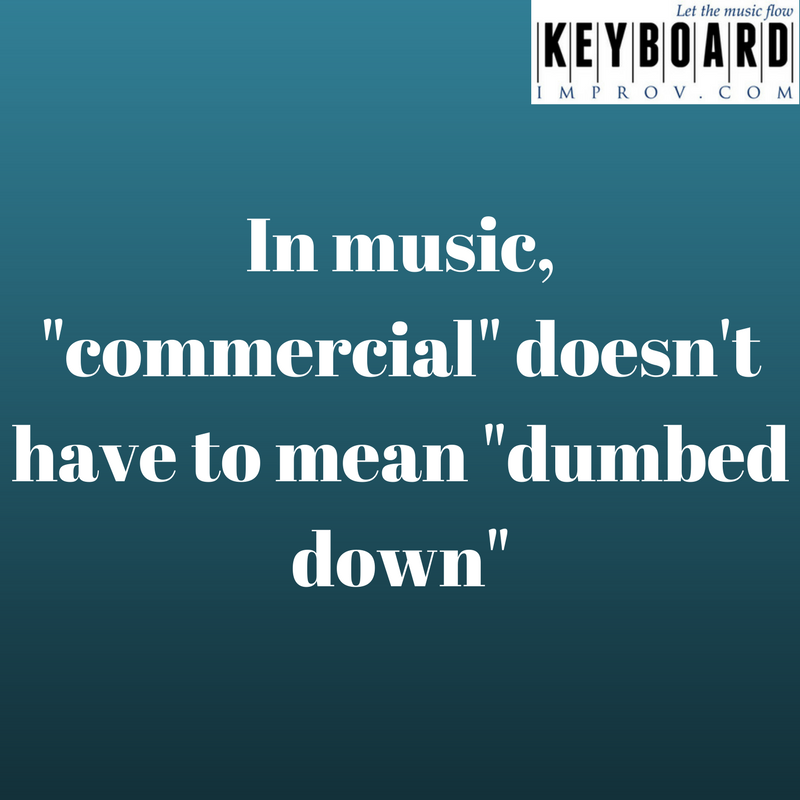
If we look back in musical history at the musicians who have made the greatest music, we’ll see that they have one thing in common: they made the music that they wanted to make. This generally holds true even when they had big hits.
Mozart’s opera “The Magic Flute” was a big hit. So was Duke Ellington’s “Mood Indigo.” The Beatles’ “Let It Be” was, too. Big hits, but also exactly what the artists wanted to play. No one would accuse any of these musicians of “dumbing down” their music just to be more commercially successful.
There are still a lot of great musicians creating music today, but unfortunately it’s become harder and harder for these artists to get recording contracts or be heard on mainstream radio and TV. The good news, of course, is that they can go directly to the public via the internet. But commercial media is mostly rewarding the musical artists who do what’s instantly seen as commercial, and don’t necessarily follow their inner vision.
And it’s not just pop music. Symphony orchestras need to stay with the classics in order to fill seats, and even jazz oftentimes needs to sound like already-established music in order to get a fair hearing.
But the truth is that the public wants more. We don’t all want to hear the same music over and over again and we’re hungry for more variety. The musical “Hamilton” is proof of this. It’s the biggest thing to come to Broadway in years and everyone from young kids to adults loves it. Yes, they might be drawn in by the hip hop and rap, but they quickly fall in love with the classical-sounding singing, the traditional Broadway elements of the score, and all the choral harmonies. Yes, we want more then we’re usually given by the mainstream entertainment industry.
Years ago, when Natalie Cole wanted to sing the songs of her father, Nat King Cole, her record company said ‘no,’ telling her that nobody would buy it. So she went to another label and they had a big hit together.
Broadway has discovered this again in “Hamilton.” It’s stunningly good and as about commercially successful as you can get.
There’s a big audience for quality music. At some point the record companies, Grammy awards, and mainsteam media are going to realize this. And then we might (just might) have another golden era of music like they did in 1790s Vienna, 1920s New Orleans, and 1960s London and California.
In the meantime, let’s just “keep on keepin’ on” and doing what we can to keep the flame alive! (As pianists, if we truly believe in our music, there are other people out there that will believe in it too.)
Learn the 5 Essential Left Hand Techniques with my free ebook: Left Hand Techniques for Jazz Piano
You’ll also get my weekly jazz newsletter with practice tips and inspiration

